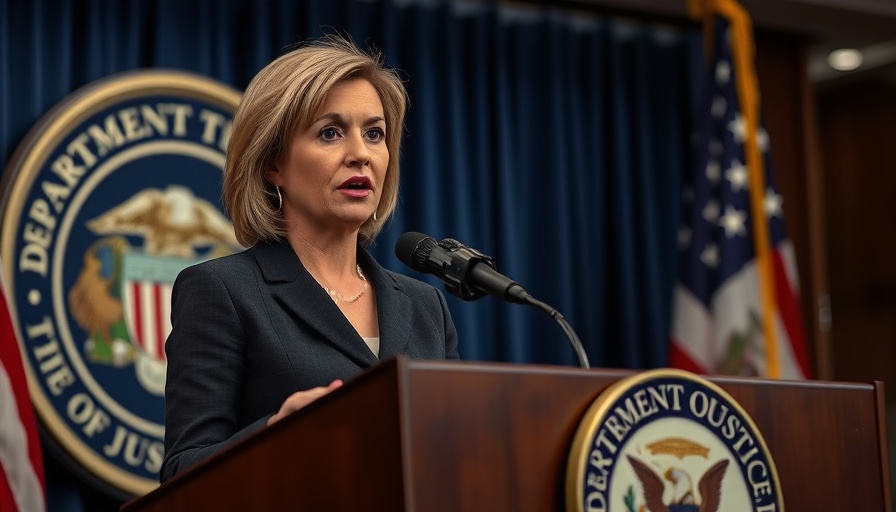
The Justice Department's New Approach to Organized Crime
The recent charges against Jose Enrique Martinez Flores by the Justice Department mark a significant shift in how the U.S. tackles organized crime. As a high-ranking member of the Tren de Aragua gang, Flores' apprehension is just the first in what officials are calling a broader initiative to treat this Venezuelan gang as a terrorist organization.
Understanding the Tren de Aragua Gang's Reach
Formed in Venezuela, the Tren de Aragua gang has been linked to severe drug trafficking and violence across multiple countries, including the U.S. Its designation as a foreign terrorist organization opens the door for federal authorities to apply strict anti-terrorism laws against its members. This leads to public safety efforts that focus not just on violence, but on the systemic dismantling of drug networks fueling addiction and crime in communities across America.
America's Fight Against Drug Trafficking and Terrorism
Attorney General Pam Bondi emphasized the severity of the threat posed by TdA, labeling it as more than just a street gang, but rather a highly organized terrorist entity. This sharp characterization is important: by applying the label of terrorism, the Justice Department is signaling it intends to utilize more comprehensive legal strategies to uproot these networks—much like it has done in the past with groups such as al-Qaida and ISIS.
Legal Ramifications of Terrorism Designation
Flores has been charged under a statute commonly reserved for terrorist activities, which can lead to severe penalties, including life in prison. By prosecuting him under this statute, the DOJ is taking a strong stance against anyone providing material support to a foreign terrorist organization—a move that reflects the growing complexity of the fight against not only terrorism but also the pervasive drug threat facing the country.
Public Reaction to Law Enforcement's Actions
The response from law enforcement and community members has been a mix of reassurance and concern. Citizens are hopeful that the government’s serious approach to gangs like TdA will lead to safer neighborhoods. However, there’s also anxiety about the broader implications for undocumented immigrants, particularly Venezuelans, who may face negative fallout from this aggressive policy.
Future of Immigration Policies and Public Safety
The Trump administration’s labeling of TdA as a terrorist group is part of a broader narrative that connects violent gangs with immigration issues. As policies continue to evolve, those interested in immigration reform will be closely watching how these legal precedents affect communities and the lives of Venezuelans fleeing violence.
Conclusion: Impacts on Communities and National Security
The case against Jose Enrique Martinez Flores is just the beginning of what promises to be a more aggressive legal stance towards gangs categorized within this expansive definition of terrorism. Continued public dialogue will be necessary to ensure that efforts to increase national security do not inadvertently harm innocent individuals—especially those seeking refuge from violence.
 Add Row
Add Row  Add
Add 




Write A Comment